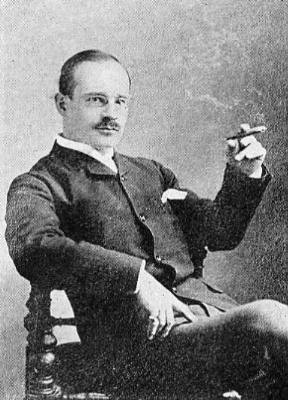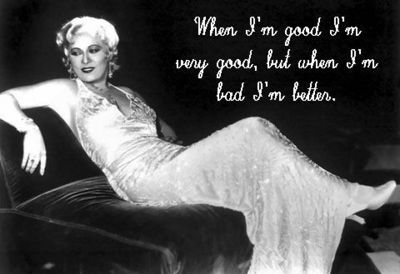Daoism: Religion, History and Society
/UPDATE: I haven't been able to figure out how to get past the wall, by hook or by crook. I even looked for a way to pay! Anyone know how to get to the text?
North Star Martial Arts
In depth discussions of internal martial arts, theatricality, and Daoist ritual emptiness. Original martial arts ideas and Daoist education with a sense of humor and intelligence.
Books: TAI CHI, BAGUAZHANG AND THE GOLDEN ELIXIR, Internal Martial Arts Before the Boxer Uprising. By Scott Park Phillips. Paper ($30.00), Digital ($9.99)
Possible Origins, A Cultural History of Chinese Martial Arts, Theater and Religion, (2016) By Scott Park Phillips. Paper ($18.95), Digital ($9.99)
Watch Video: A Cultural History of Tai Chi
New Eastover Workshop, in Eastern Massachusetts, Italy, and France are in the works.
Daodejing Online - Learn Daoist Meditation through studying Daoism’s most sacred text Laozi’s Daodejing. You can join from anywhere in the world, $50. Email me if you are interesting in joining!
 Well, what if you watch TV and smoke at the same time? Do they cancel each other out since smoking is an appetite suppressant? Oh dear, what about horror movies, good for blood circulation no doubt, but could too many lead to loss of sleep. And what about the various theories of intensity? A fast beating heart for a short period of time each day makes the heart beat slower for the rest of the day. Texting? Does it shorten your life? What about Sexting? Does muting the commercials help? The article says that watching TV for an hour takes twenty minutes off of your life. Now I only watch TV on the computer and I didn't watch any TV between age 12 and 34 so I'm probably going to live forever. However, what would happen if people visualized the process. You know, sort of like a giant game of hang man! You could put your life span up on the wall. Paint in just a little bit more of that giant hang man every time you turn on the tube. You could paint in a little bit every time you stay up late or drink single malt whiskey. The more demonstrably visible this giant hang man was, the more talismanic it's effects would be. Here is another idea, you could have a watch that counts down to your demise. It could have a "bit-o-life-lost" button which you would have to push every time you got in a stressful argument. Heck, they should bust out an app for that! How many minutes do you have left?
Well, what if you watch TV and smoke at the same time? Do they cancel each other out since smoking is an appetite suppressant? Oh dear, what about horror movies, good for blood circulation no doubt, but could too many lead to loss of sleep. And what about the various theories of intensity? A fast beating heart for a short period of time each day makes the heart beat slower for the rest of the day. Texting? Does it shorten your life? What about Sexting? Does muting the commercials help? The article says that watching TV for an hour takes twenty minutes off of your life. Now I only watch TV on the computer and I didn't watch any TV between age 12 and 34 so I'm probably going to live forever. However, what would happen if people visualized the process. You know, sort of like a giant game of hang man! You could put your life span up on the wall. Paint in just a little bit more of that giant hang man every time you turn on the tube. You could paint in a little bit every time you stay up late or drink single malt whiskey. The more demonstrably visible this giant hang man was, the more talismanic it's effects would be. Here is another idea, you could have a watch that counts down to your demise. It could have a "bit-o-life-lost" button which you would have to push every time you got in a stressful argument. Heck, they should bust out an app for that! How many minutes do you have left? Alan suggests that an increase in "Body Sense" will improve breathing. This is partly a vocabulary problem but he is also partly wrong. What causes a freeze, or shallow breathing, or constricted breathing is the retreat of a persons spacial mind to their own body. In normal social interactions the spacial mind is a bubble around the body. The bubble is always changing, sometimes it is big, imagine a couple of cowboys smoking rollies on the front porch; and sometimes it is small, imagine polite people on a crowded subway. Stand on a stage confidently and joyously singing the national anthem and the spacial body will get big. On the other hand, with stage fright the bubble becomes like plastic wrap on the body. In a challenge confrontation between two males of the same tribe, these spacial body bubbles stay close to the body in order to de-power the confrontation--because the goal is for one guy to submit to the others dominance, not to do life threatening damage.
Alan suggests that an increase in "Body Sense" will improve breathing. This is partly a vocabulary problem but he is also partly wrong. What causes a freeze, or shallow breathing, or constricted breathing is the retreat of a persons spacial mind to their own body. In normal social interactions the spacial mind is a bubble around the body. The bubble is always changing, sometimes it is big, imagine a couple of cowboys smoking rollies on the front porch; and sometimes it is small, imagine polite people on a crowded subway. Stand on a stage confidently and joyously singing the national anthem and the spacial body will get big. On the other hand, with stage fright the bubble becomes like plastic wrap on the body. In a challenge confrontation between two males of the same tribe, these spacial body bubbles stay close to the body in order to de-power the confrontation--because the goal is for one guy to submit to the others dominance, not to do life threatening damage.
In November 1855, the Great Ansei Earthquake struck the city of Edo (now Tokyo), claiming 7,000 lives and inflicting widespread damage. Within days, a new type of color woodblock print known as namazu-e (lit. "catfish pictures") became popular among the residents of the shaken city. These prints featured depictions of mythical giant catfish (namazu) who, according to popular legend, caused earthquakes by thrashing about in their underground lairs. In addition to providing humor and social commentary, many prints claimed to offer protection from future earthquakes.
 Namazu with construction tools, portrayed as the legendary warrior Benkei
Namazu with construction tools, portrayed as the legendary warrior Benkei The term xu is a key concept which ties together daoyin, the ritual body, trance, and all types of martial arts. The first definition my dictionary gives of xu is “empty” or “hollow” but this is misleading as the term kong is generally used to describe emptiness in martial arts, meditation or ritual.
The term xu is a key concept which ties together daoyin, the ritual body, trance, and all types of martial arts. The first definition my dictionary gives of xu is “empty” or “hollow” but this is misleading as the term kong is generally used to describe emptiness in martial arts, meditation or ritual.A place to train and learn about traditional Chinese martial arts, which are a form of religious theater combined with martial skills.